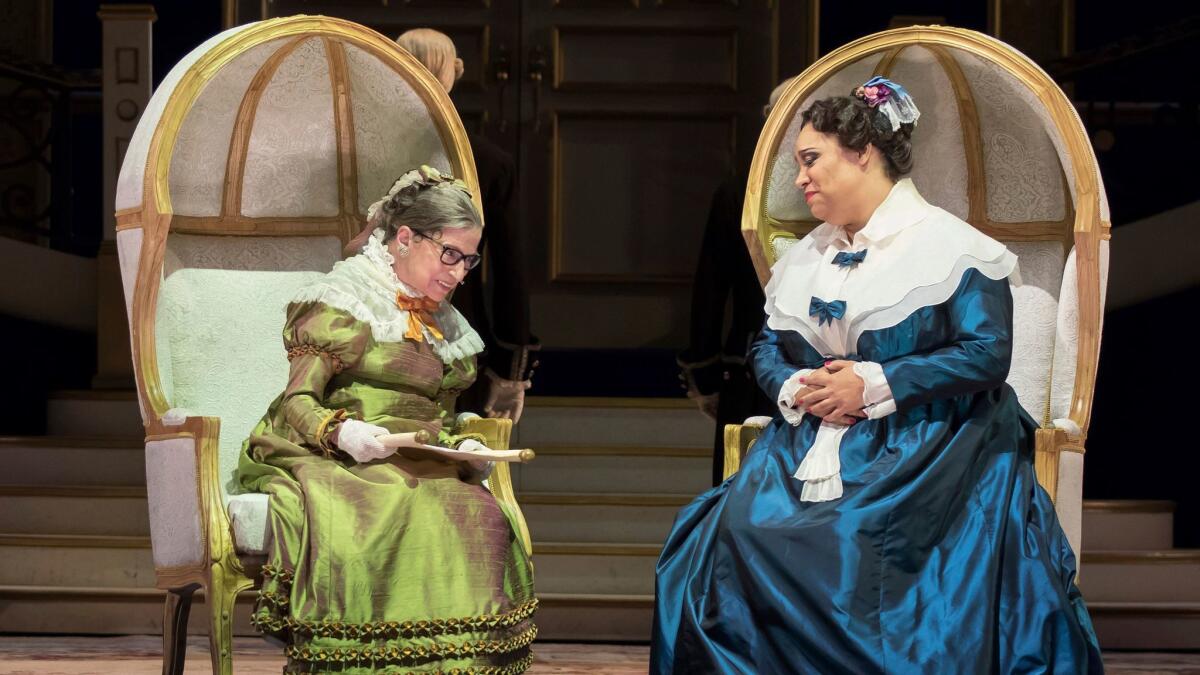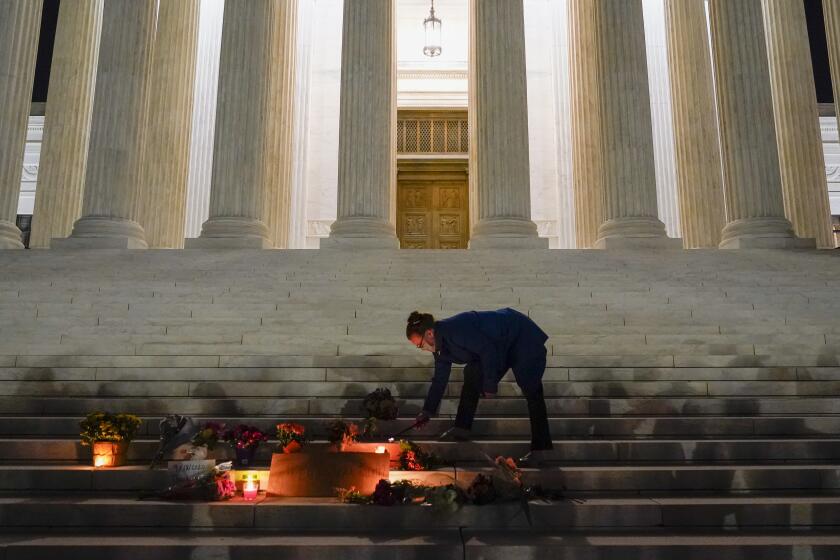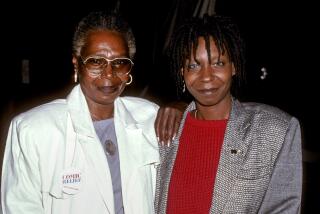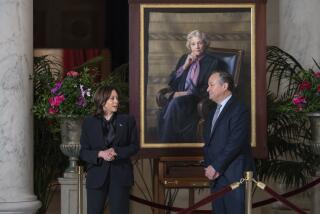‘RBG’ documentary filmmakers reflect on Ruth Bader Ginsburg’s extraordinary life
- Share via
The death of Justice Ruth Bader Ginsburg on Friday came as a complete shock to Julie Cohen and Betsy West, the filmmakers who spent years making the 2018 movie “RBG.”
The Oscar-nominated documentary chronicles the feminist icon’s life. It tracks her upbringing in Brooklyn, N.Y., and loving marriage to her late husband, Martin Ginsburg, her years leading the legal fight against sex discrimination in the 1970s, rise to the Supreme Court, and her ascent into a pop culture phenomenon.
Although, Ginsburg’s health had been precarious over the years, “I’m sadder than I thought I would be,” Cohen said.
“She’s a woman who had so much power and presence that being around her for the time that we were to make the movie was just an incredible experience.”
When Cohen and West first approached Ginsburg in early 2015 about making a documentary, the justice was hesitant. “Her first answer was basically, ‘Not yet,’” Cohen said. The filmmakers kept in touch and a few months later, they got her approval.
“I think the reason that she did [agree to do it] was wanting, not just legal eagles, but regular, ordinary people to understand what can be accomplished by fighting the good fight for constitutional law,” Cohen said. “She knew what she had done in her career would be a lesson for others pursuing those four big words on the front of the Supreme Court, ‘equal justice under law.’”
Ginsburg showed me the power of working from a disadvantage — the more they underestimate you, the more satisfying the victory. Her 22-year battle against various cancers was an inspiration for someone who lost his mother just last year to ovarian cancer.
For a couple of years, the filmmakers trailed Ginsburg around the country as she gave talks at law schools and other venues. They interviewed her family, close friends and former colleagues.
“We got to see her a little bit from afar and to see the generosity with which she engages people about her views on our democracy and our constitution,” West said, “the effort that she makes to connect with citizens.”
They captured the “astonishing” moments — such as Ginsburg’s intense fitness regimen, which she began after her first bout with pancreatic cancer.
“We got in there and witnessed the seriousness with which she approached keeping herself in shape — doing push-ups, and the planks, the medicine ball — I mean it was astonishing and inspiring as an older woman,” West said.

Cohen and West also captured Ginsburg’s love for the arts, particularly opera.
“We went to a couple of operas with her and saw the complete passion that she feels for opera and for music. She just loses herself in the music,” West said. “In a way, she’s such an intense worker, such a thinker, such a serious person that the opera is a place where she goes for just complete joy.”
After spending so much time with Ginsburg, people often asked Cohen and West if they were on a first-name basis.
“The answer was, ‘Absolutely not,’” Cohen said. The filmmakers called her “Justice Ginsburg” or simply “Justice.”
“She has that kind of presence that one feels the need to be just ultra respectful. … She had this kind of quiet, tiny power and it really emanated from her when you were around her.”
“She had a sense of humor and a real sparkle to her, but she was also very intimidating,” Cohen continued.
Ginsburg didn’t watch the documentary until the Sundance premiere, which both filmmakers described as a nerve-racking experience. The two sat across the aisle from Ginsburg, anxiously watching all her reactions as the film played.
She dabbed her eyes during scenes with her late husband, Martin, and laughed at her own humor. “She seemed very engaged and to enjoy the storytelling which made us very happy and relieved,” West said.
After the premiere, the filmmakers kept in touch with Ginsburg, who sent brief but “always very, very kind,” notes via mail or email.
Ginsburg even inspired their upcoming, not-yet-announced documentary project “about another groundbreaking lawyer who’s much less well known, but someone she pointed us in the direction of,” West said.
The world changed, politics roared, America’s mood shifted this way and that, and Ginsburg worked, steadily as she had always done, dismantling injustice wherever she could.
Working with Ginsburg, Cohen gleaned several life lessons, like having optimism in the face of adversity and the importance of tenacity.
“When you think of power and toughness, you expect that you’re talking about a big, loud, forceful man and Justice Ginsburg was none of those things,” Cohen said. “She was tiny, she had a soft voice, she was an introvert. And yet there was just no question that she had power and that power came both from the wattage that was her brain but also from her level of determination.”
With Ginsburg’s death, the film has rapidly found renewed interest, which West called “inspiring.”
It’s featured prominently on Hulu and will be broadcast on CNN over the weekend. The documentary is also available for rent on Amazon Prime Video and in the iTunes store.
“The fact is that had she not been a Supreme Court justice, she still would hold a place in American history for what she did for equality, for American women,” West said. “She’s just a towering figure in our history and I’m happy that she’s being recognized.”
More to Read
The biggest entertainment stories
Get our big stories about Hollywood, film, television, music, arts, culture and more right in your inbox as soon as they publish.
You may occasionally receive promotional content from the Los Angeles Times.











